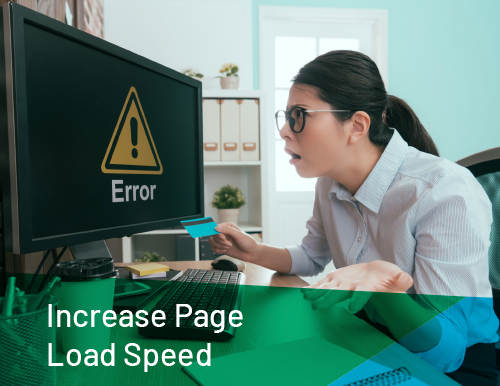Everybody hates slow websites – waiting for different page elements to load – images, videos, content, and backgrounds. It can be so frustrating. The landing page speed can make or break a website. When a page has finally finished loading, you are often ready to click the back button and entirely give up on the site.
Reasons to Improve Your Page Load Speed
User frustration can be bad for business
A study in the USA by e-consultants, LoadStorm, showed the following dramatic impacts of a poorly performing website:
- 25% of visitors will abandon a website that takes more than 4 seconds to load
- 46% of users will not return to a poorly performing website
- A1-second delay in loading reduces customer satisfaction by as much as 16%
The BBC has shown that it loses an additional 10% of users for every extra second it takes for its site to load. That’s all you need to know about understanding the importance of user experience and the need for a website that loads fast. Your business depends upon it.
Landing page load speeds impact SEO
Content and relevance still reign supreme if you want to rise up the search engine results page, but now the page speed ranking factor Google measures can significantly impact your SEO. As far as Google is concerned, the user experience must come first, and landing page speed is an essential determinant of that experience.
Reduced Google ad performance
 Imagine you have a potential customer who has seen an ad and has been directed to your google landing page. Your targeting has been correct, and your message is on point. When they arrive at your Google ads landing page, it takes forever to open. In frustration, they move on to another supplier who can meet their needs in a more timely manner. And you pay for the click-through. You may even have invested time and money in building that landing page for ads.
Imagine you have a potential customer who has seen an ad and has been directed to your google landing page. Your targeting has been correct, and your message is on point. When they arrive at your Google ads landing page, it takes forever to open. In frustration, they move on to another supplier who can meet their needs in a more timely manner. And you pay for the click-through. You may even have invested time and money in building that landing page for ads.
How you can improve landing page load speed
It’s not only your landing page speed that should be addressed but every page on your website. So, how can you ensure that your page load speed is optimal? Every website owner should be aware of two aspects of page load speed: server speed and onsite page load speed. Server speed refers to how quickly the server hosting your website can respond to page requests. The faster a server can deliver these responses, the more quickly your website will load. Different web hosting technologies provide different hosting infrastructures; these infrastructures essentially govern the server speeds. A VPS (Virtual private server), for example, is a hosting service that provides power and control for faster growing business. But if you don’t need the performance of a VPS, Webcentral can offer a range of other hosting solutions that matches your requirements with a hosting product that delivers optimal loading speeds. Onsite page load speed refers to how efficiently and quickly a web browser can download the page content and display this to the website visitor. Why not engage Webcentral’s 5 point website health check as a start. Included in the health check is an assessment of your website speed and a few quick ways to improve your user experience.




